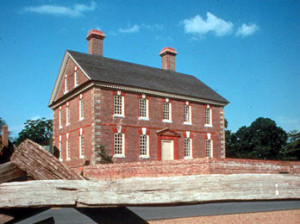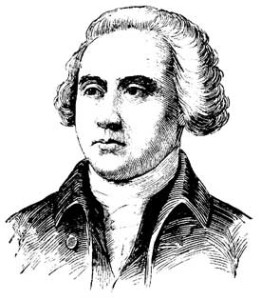County’s namesake was a Revolutionary War patriot
By JIM BROOKS
Nelson County Gazette
April 24, 2013, 11:20 p.m. — Thomas Nelson Jr. was born into the Virginia aristocracy in December 1738. His parents sent him at age 14 to England to attend high school and college. He graduated from Cambridge, and returned to Virginia about 1761.
He married the year after his return and joined his father William Nelson, in business. (History trivia: Thomas Nelson was not a “Junior”, but was given that suffix to distinguish him from his uncle, also named Thomas). On William Nelson’s death, Thomas inherited his father’s business and significant land holdings in the state. At the outbreak of the American Revolution, Thomas Nelson Jr. was one of the most influential men in Virginia.
Thomas Nelson Jr. was elected to the Virginia House of Burgesses by 1774. As Virginia moved toward war with Britain, Nelson was appointed Colonel of the 2nd Virginia Infantry Regiment. He was elected to fill George Washington’s seat in the Second Continental Congress when Washington left to assume command of the Continental Army.
When the British began to invade Virginia, Nelson was chosen to succeed Thomas Jefferson as governor of Virginia. Nelson took charge of the government and used near-dictatorial control to coordinate state defenses against British Lord Cornwallis.

Thomas Nelson Jr. directed artillery units to target his home, above, when he suspected British officers of using it for their headquarters.
Nelson took command of the Virginia Militia, leading them against the British during the Siege of Yorktown alongside Gen. Washington’s Continental Army and the allied French forces.
Thomas Nelson Jr. directed artillery units to target his home, above, when he suspected British officers of using it for their headquarters.
One of the legends of the Siege of Yorktown is that Nelson, believing British officers to be occupying his stately home, offered money to the first American artillerist to hit his home with cannon fire. The home suffered severe damage, and Nelson could not afford to repair the damage after the war.
Nelson personally financed equipment and food for troops, and raised money from other Virginia planters by personally promising to repay them himself if the Continental Congress failed to repay the loans. Nelson alone contributed more than $2 million to the war effort in Virginia, a debt that was never repaid.
The war left Nelson and his family in poverty; he and his family moved in with his son in Hanover, Va. Thomas Nelson Jr. died at age 51 of asthma in 1789. He was buried in an unmarked grave so that his creditors could not hold his body as collateral. He was the first signer of the Declaration of Independence to die.
In the light of current times and political trends, it’s hard to fathom any well-financed politician today giving so much for the defense of a cause such as Liberty. Nelson proved that politicians once did believe in causes far greater than their own circumstances.
-30-







